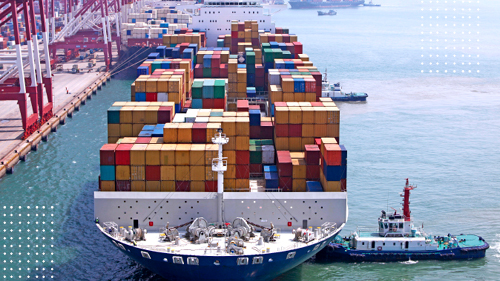Incoterms 2020 Explained
10/25/2019

The International Chamber of Commerce (ICC) has published its latest version of Incoterms 2020, which went into effect on January 1, 2020, and continues to be used in 2023 and beyond. The Incoterms rules help individuals and companies participate in the daily import and export of global trade. These essential terms of trade can be found in the newly published guide, now available for purchase from the ICC.
In this Article:
- What does Incoterms do?
- What does Incoterms not do?
- How are Incoterms used?
- What happens to existing contracts?
- Main changes to Incoterms 2020 that can be used in 2023 and beyond
What does Incoterms do?
- Describes Obligations – Who does what in the transaction; who is responsible for the different parts of a transaction
- Explains Risks – When and where risk transfers from the seller to the buyer
- Outlines Costs – Who is responsible for the different costs of the transaction
What does Incoterms not do?
- Outline ownership of goods or payment terms
- Provide guidelines for breach of sale
- Outline the effects of sanctions, tariffs, prohibitions, IPR (Intellectual Property Rights) or steamship actions
- Facilitate dispute resolution
- Act as a contract for sale
How are Incoterms used?
Incoterms are a globally accepted set of guidelines that are usable regardless of language or culture. They were established in 1936 as a trade contractual standard and are updated decennially to encompass the ever-changing technology and practices in international trade.
Buyers and sellers can utilize any published version of Incoterms; however, they must state the version used to ensure that all parties are aware of the ramifications of that version. Incoterms are best used as a reference in contracts. However, Incoterms do not have any legal weight to them independently, so contractual parties must refer explicitly to which set of Incoterms they wish to use in a contract.
If a contract uses Incoterms 2020 as a guideline, the newest version should be noted. All commercial invoices should state the agreed-upon Incoterms, including the name, place and Incoterms version.
An example of such would be: ExWorks ABC Company, OceanTown, NY, Incoterms 2020
What happens to existing contracts?
Past versions of Incoterms will continue to apply even if the contract will take place beyond 2020 unless the contract says otherwise. For contracts entered into before January 1, 2020, it is essential for the parties involved to indicate which set of Incoterms is applicable.
After January 1, 2020, courts and arbitrators expect that any reference to Incoterms in new contracts is intended to be a reference to Incoterms 2020.
Main changes to Incoterms 2020 from previous versions
- More emphasis on steering the users to use the “correct” Incoterms rule
- Clearer explanations and notes on how to use each Incoterm
- Delivery and risk factors are given more focus in the updated rules
- DAT (Delivered at Terminal) replaced by DPU (Delivered at Place Unloaded)
Click here for a downloadable chart of the Incoterms 2020 definitions and changes
Who said logistics has to be complicated? We certainly didn’t. Contact our team to learn more about our International solutions.
May 23, 2024
Cargo Insurance: Your Complete Guide
June 30, 2022
Thank you for contacting Ascent!
A member of our team will be in contact within a few business hours.
Okay